Water Quality Management for Flounder Farming
Interview
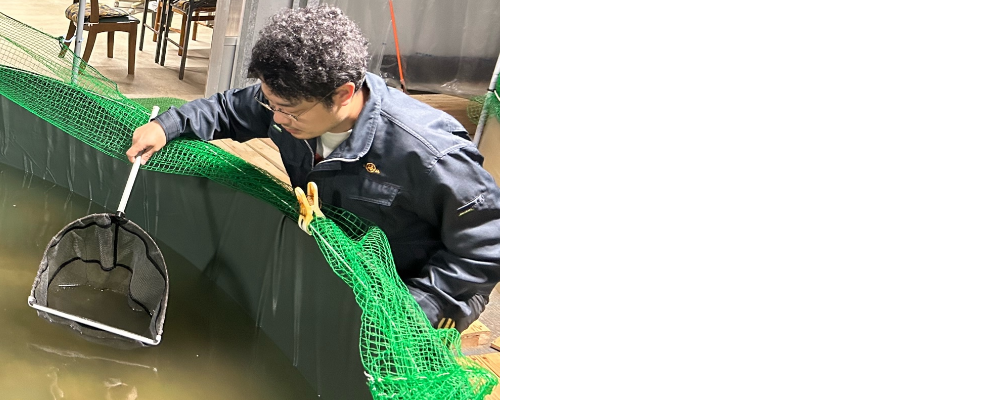
Striving for Low-Impact Methods to Consistently Deliver Safe, Reliable, and Delicious Farmed Fish
OBAMA SEAFOODS CO.,LTD.
Mr. Tanabe
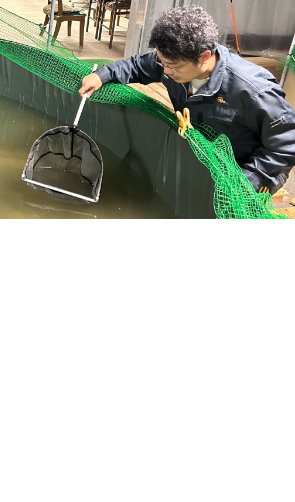
Striving for Low-Impact Methods to Consistently Deliver Safe, Reliable, and Delicious Farmed Fish
OBAMA SEAFOODS CO.,LTD.
Mr. Tanabe
OBAMA SEAFOODS CO., LTD., was founded in 1984 and processes marine products, including the renowned 'Kodai Sasazuke,' leveraging the rich fisheries resources of Wakasa Bay. As a regional wholesale market, they handle a variety of seafood and other food products. In 2020, they started a new land-based aquaculture business and introduced i-enter's 'IoT Water Quality Sensor.
We interviewed them to learn about why they chose our service, the results after implementation, and their future plans.
Inadequate Water Quality Measurement Increases Operating Costs
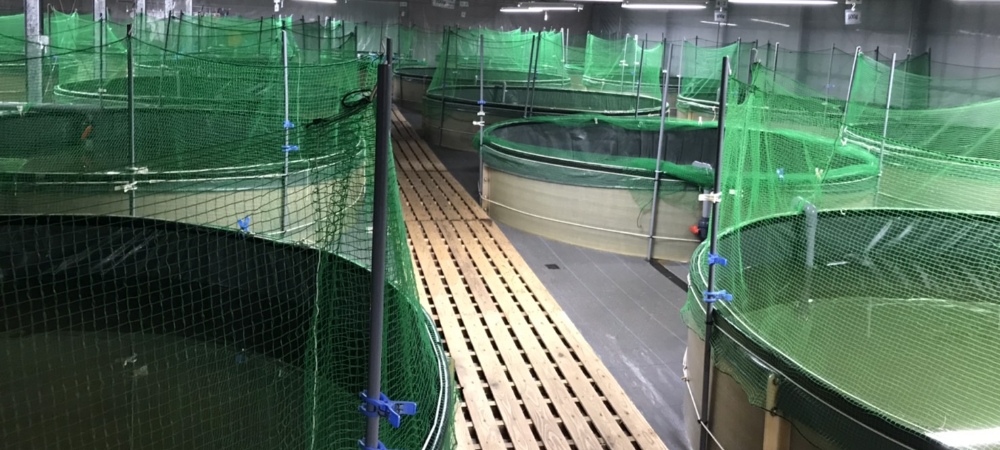
ーCould you share with us the reasons and process that led to the implementation of our system?
Before we introduced i-enter's Water Quality Sensor, we were using a different sensor for monitoring water quality as part of our study. However, we frequently encountered measurement errors, leading to gaps in our water quality data. Additionally, the large size of the sensor wasn't user-friendly.
As our study was nearing completion and additional costs were becoming a concern, we began searching for an alternative water quality sensor. That's when we discovered i-enter's IoT Water Quality Sensor online. With its affordable price, the ability to set shorter measurement intervals, and superior usability, it stood out as the best option, prompting us to proceed with its implementation.
ーWhat are some challenges you were facing before the implementation of our system?
As mentioned earlier, the water quality sensor from the other company was fraught with errors, so we turned to a handy type sensor for our measurements. However, considering we had 38 tanks to monitor, the measurement process was quite labor-intensive, taking about an hour and a half.
Moreover, since our monitoring wasn't a 24/7 operation and there was no one present during off-hours, there were periods when we couldn't measure the water quality. This situation was a cause for concern. Driven by this worry, we ended up using more oxygen than necessary, which I believe contributed to increased operating costs.
A Service that Minimizes Operation Time and Mitigates Fish Mortality Risk
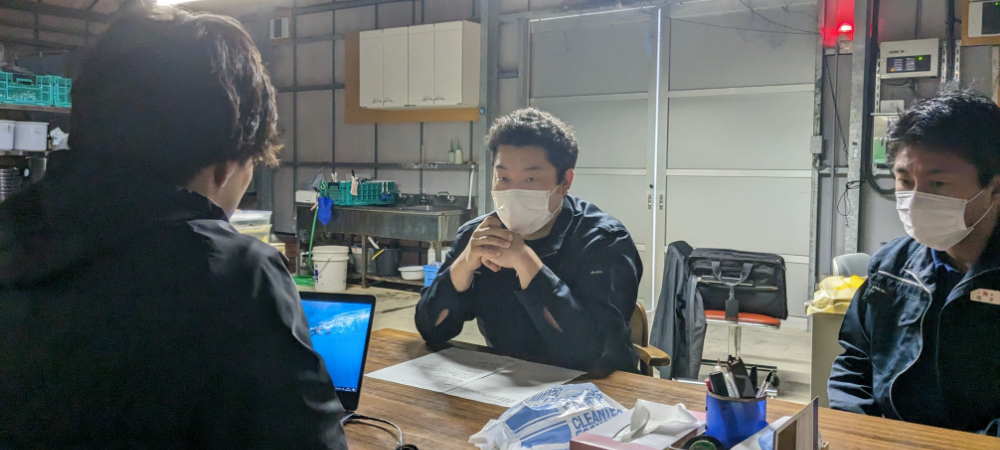
ーCan you tell us about the effects after the implementation of our IoT Water Quality Sensor?
First off, we've been successful in drastically reducing the time it takes to measure water quality. Even though our team size remains the same, our need for constant supervision has diminished. This change has given us the flexibility to delegate the task to part-time staff, freeing up our supervisor for other important duties.
Additionally, the alert system has been a tremendous asset, significantly reducing our stress. For instance, we once received an alert when the Dissolved Oxygen (DO) levels dipped below the established threshold. This helped us quickly detect that the aerator had stopped at our site. Thanks to this immediate alert, we managed to prevent fish mortality. This incident really highlighted the importance of this service in not only saving our operational time, but also in minimizing the risk to our fish population.
PC for On-site, Smartphone for Off-site & After hours
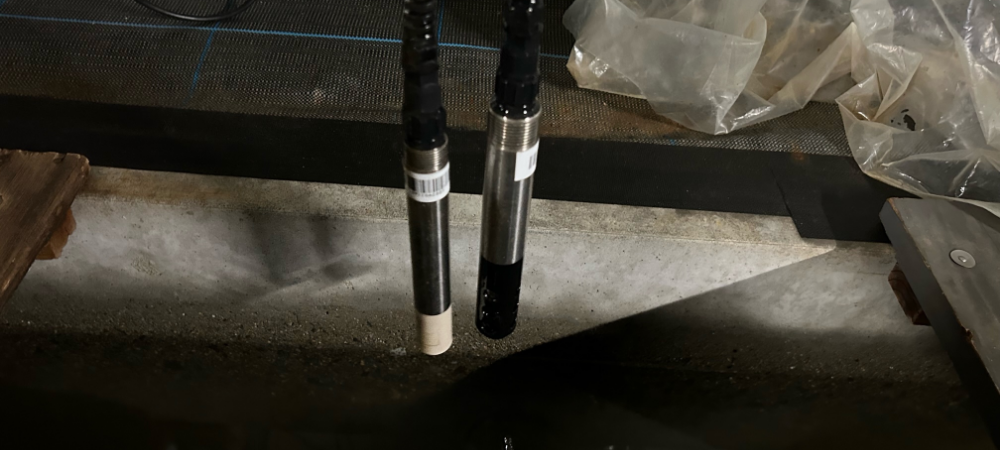
ーCould you share your experience with using the sensor?
We perform routine maintenance on our sensors, cleaning them every one to two weeks and calibrating them every 3 months. So far, we have not encountered any errors. Knowing we can get immediate assistance if any issues arise gives us peace of mind.
When it comes to monitoring water quality data, we use our PC while on-site. But if we're off-site or it's after regular business hours, our smartphones are our go-to. The convenience of accessing the data on our phones without the need to power up a PC each time is a great advantage.
ーAre there any features you hope to see in the future?
The ability to monitor elements like ammonia, nitrate, and nitrite 24/7 could significantly boost the efficiency of our aquaculture operations.
Efforts in Environmentally Conscious Land-Based Aquaculture.
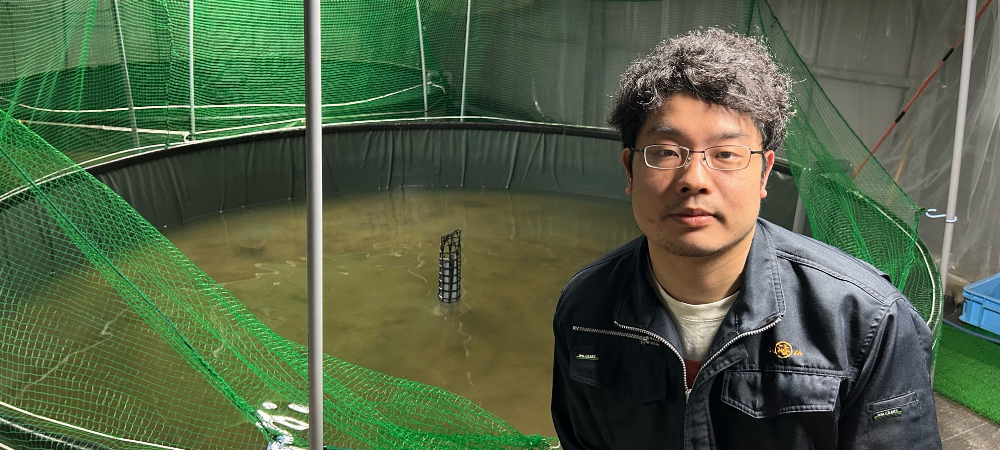
ーAre you considering incorporating more IT technologies in the future?
We are planning to establish a new farm by 2025, just two years from now. We're starting small, but with the intention to expand in the future. Ideally, we hope to incorporate i-enter’s IoT Water Quality Sensor into all our tanks as part of this growth strategy.
ーCould you share with us your future aspirations and the role you envision playing in society?
In recent years, the importance of aquaculture for the sustainable use of marine resources has increasingly been recognized. We share this commitment, striving to protect the sea of Omihama, which has fostered a rich culinary culture and supported life for generations. Driven by this dedication, we initiated environmentally conscious land-based aquaculture in 2020, culminating in the launch of our product, the "Yaohime Flounder”(八百姫ひらめ).
Our "Yaohime Flounder" possesses three distinctive attributes. First, we use seawater infused with “oxygen nano bubbles” that have sterilizing properties. This technique reduces the risk of infectious diseases and parasites without resorting to vaccines or preventive medication, ensuring the safe and secure rearing of flounder. This organically farmed flounder, raised without any medication, maintains its freshness even after shipping, offering extended enjoyment. Second, we manage water quality strictly, ensuring that the seawater we use is returned to the ocean cleaner than when we extracted it. This approach prevents marine pollution from leftover feed and fish waste, highlighting our commitment to environmentally friendly aquaculture. Lastly, by feeding our flounder a proprietary high-protein, low-fat diet, we cultivate flounder that have firm, low-fat flesh without liver enlargement, resulting in a high yield.
Moreover, land-based aquaculture reduces risks associated with weather and natural disasters, ensuring a stable supply. We remain steadfast in our dedication to investigating environmentally friendly farming methods and continuing our research to consistently deliver safe, secure, and delicious farmed fish.
Contact Us
Please feel free to contact us for consultation or questions.
IoT/AI/XR(VR・AR・MR)/RPA/Application Development
/Web System Development/Business System Development
/Cloud Integration/Design
/UX/Digital Marketing